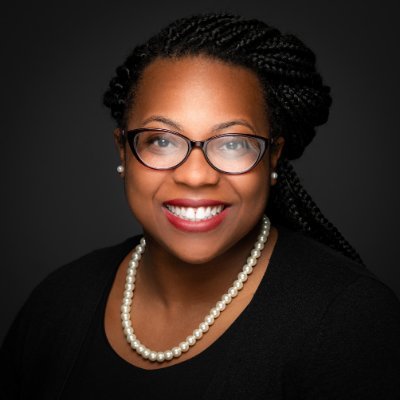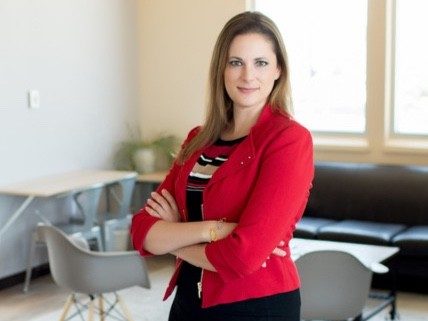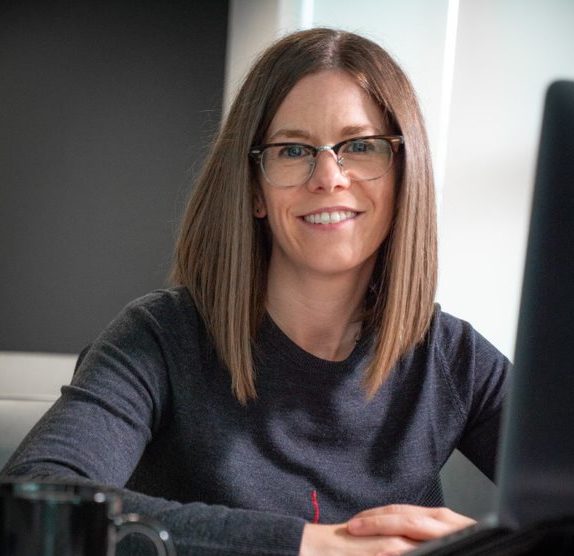What are we talking about?
Black tech entrepreneurship.
Why is black tech entrepreneurship important for the future of work?
There are lots of problems to solve out there. If the only vibrant tech ecosystem is run by white founders, then we are only solving longtail white problems. By investing in black tech entrepreneurship, we are helping people who can directly solve some of the most pressing problems in their communities.
What did Destiny Loyd teach us about black tech entrepreneurship?
Every industry has an adjective. It’s not just the tech world. It’s the white tech world. White tech companies can involve people from all backgrounds, but they are largely solving white community problems.
Destiny said, “Technology and entrepreneurship is key to generational wealth for the black community.” Black founders are ready to use technology to solve the most pressing issues facing their community, and they are great at it.
“As black people we are very innovative because we had to. It’s ingrained in us and in our DNA to solve problems. We come from a place where it’s a necessity to be innovative and figure things out.”
Destiny said, “When we bring ideas to the table, a lot of times it’s addressing issues that people in other communities may not have thought of because that’s just not their experience.”
So what should white leaders in the tech world do? When we talk about diversity and inclusion, our first instinct is to diversify the employees in our company. Some thoughts from Destiny:
- Focus on leadership positions, not just employee counts.
- There is always a spectrum of intersection from any minority community (gender, sexual orientation, economic background, etc.).
- One black person does not speak for all black people.
- Create an environment where minorities feel free to disagree and won’t lose their job as a result.
However, the bigger impact can come when white tech leaders come alongside black tech entrepreneurs and find ways to support them in their own initiatives. This gives the black founder more freedom to be creative and innovate.
More from Destiny Loyd
Today, our guest is Destiny Lloyd from Be Nimble, and this episode is Work Minus Strangers. Hi, Destiny. How are you today?
I’m good. How are you?
Doing well. We are in the depths of 2020, dealing with all the craziness around us. But I’m really excited to talk to you. We actually met at a live event which hopefully kids will still know what those things are 10 years from now. Tell us a little bit about Be Nimble. What is it? What does it do? And how did you get involved?
Be Nimble is a social enterprise and we believe that technology and entrepreneurship is really a key to generational wealth for the black community. We connect black tech entrepreneurs with network and capital and resources to really scale and grow their tech or tech enabled businesses.
We’re going to get into what it means for different things. I feel like when you say black tech, it almost reminds me of how we have to remember that everything has an adjective. I feel like there’s not just there’s the tech world. And then there’s the black tech world or Latino tech world. There is such a thing as we call tech is… do you see it as mostly a white culture thing or how integrated is the tech world right now?
It’s definitely not very diverse. It’s not very integrated. So, yes, there’s levels for sure. It’s less than 1% of venture funding is awarded to black founders. We definitely see a large, huge disparity in that realm of just funding and resources going towards tech companies and black entrepreneurs.
That’s a big deal because, like you said, it creates the wealth, it makes things go further in the different communities, has a big impact on things going through. I’m really glad for what you guys do. Tell us a little bit specifically about some of the programs you run and some of the events that you hold.
We have a couple of large events. We have something called Pitch Pardi. Pitch Pardi is our demo day. We have a cohort. We open up applications at the end of the year, usually in December, and we choose around 8 to 10 black owned tech businesses. We work with the founders. We put them through pretty much a mini accelerator. We help them prepare for their pitches. And we give them access to different resources, different people in the business world, in the tech world, that can help them create this really amazing pitch. And then we have a panel of judges. People from the industry from around the country, not just in Indianapolis, they come and they judge this demo day. And these founders are given the opportunity to pitch their idea. And they compete for top prizes. Our most recent Pitch Pardi was in February of this year, and the top prize was $10,000. And then there was a $5,000 prize and a $2,500 prize. And then they also get access to resources, like marketing resources and get access to talking to lawyers and things like that. Just different resources that will help them scale and make their business successful. That was in February. We also have other events. Our flagship event is PardiGrad. PardiGrad is a fundraising gala that we have every year as well. And the proceeds from that go towards our Black Hatch fund, which is a VC fund that is basically where we give funding to invest in different black owned tech companies.
So, when we’re talking about entrepreneurs, we’re talking about people who like to solve problems. They see a problem out there, they feel like they can come up with a business that addresses that issue that’s there. Tell us about the difference in just when you talk about white worlds, black world, other worlds that are out there. What are some of the issues that these black entrepreneurs are addressing and seeing that maybe the white world is not aware of?
I would say that, as black people, we are very innovative because we have to. We’ve had to. I think that is just really ingrained in us. And it’s just in our DNA to solve problems because we have been the ones with the most problems. And I think that we bring that mindset and that just intuitive problem solving to the table when we’re talking about creating things, creating concepts and businesses and ideas that solve a problem and a universal problem is solved. We come from a place where a lot of people can identify with the issues that we have because a lot of people come from where we come from. When we bring ideas to the table, a lot of times it’s addressing issues that people in other communities may not have thought of because that’s just not their experience. That’s not their life experience. So, there are a lot of ideas and a lot of just new ways to approach things. That’s being nimble, being able to really pivot when necessary. And in the midst of chaos, you’re able to find a solution. I recently saw there’s a local chef here. She has a restaurant. It’s a little like storefront, I guess you could call it, out on the east side. But with all of these things that are happening and not being able to really serve our customers regularly, she came up with an idea and it was quick. This was probably early this week. She came up with an idea to help her own business and just stay out there. The meals that she serves, she’s now serving them to go basically. So, I think it’s like $40, you can order all of the ingredients that come in this meal that she makes. It’s basically like a crab shrimp boil with the butter sauce and the crab legs and the corn, but basically she takes each ingredient and she puts them in vacuum sealed bags for you. She puts the sauce in containers and basically you can just buy all of these ingredients for $40 and you can take it home. She has basically the instructions of how to cook it. It’s sold out very quickly. And things like that. We come from places where you have to feed your kids, you don’t have a choice, you don’t have the luxury of having a fully stocked refrigerator or having someone else go to the store for you. I feel like us as black people, we come from a place where it’s a necessity to be innovative and to figure things out. And that’s exactly what she did. And I know that that is the same mindset that a lot of other black entrepreneurs come from.
I think this is really important because as we talk about entrepreneurship and we talk about problem solving, if we look at the white tech world, a lot of the problems they’re trying to solve are, like, you’re almost trying to create problems because maybe they don’t exist on their own or a lot of the easy problems have already been solved. But among other cultures, it’s just not the case. There’s still a lot of things that need to happen. There’s a lot of basic things that can be done.
There’s always a problem to solve. And for a lot of people in the black community, those problems are everyday problems.
So, it’s an awesome opportunity. I’m so glad you guys are doing what you’re doing. Let’s talk about those two different worlds then of white tech, black tech that’s out there. How much crossover do you think needs to happen? What’s the support that needs to flow from one group to another? In your world, what’s the ideal situation?
I would say that it needs to be the norm. Right now, I feel like a lot of the white investors invest in black companies because it’s a box to check instead of approaching it from a standpoint of these founders, these innovators are solving a problem that majority of our audience has. So, I think that it’s important for the white tech community to understand that black tech founders are solving the issues that your constituents have. And your audience is a mixture of people and your products should be addressing the issues that your audience has. And 9 times out of 10, your audience is largely black consumers. So, you need to have people in the room that identify with the issues that black consumers have and are coming up with ideas that are solving the issues that black consumers have. And I don’t think that that is happening right now. I think that a lot of times diversity in a company just means that there’s black employees, but there aren’t enough black employees that are creating things that are worthwhile that are bringing value to the company. A lot of companies say, “Oh, yeah, we have a lot of black people.” But a lot of those black people work in positions that aren’t making any kind of impact. So, you might have black employees, but do your products reflect the diversity inside your company? And a lot of times they don’t.
Let’s talk directly to, let’s say, white CEOs of tech companies because a lot of people like that are listening to the show. What do you want them to know? In terms of they got a product they’re working on, they have a service they’re working on on the technology space, they’re wanting to be more inclusive in how they do things, but obviously what you’re saying is not just, “Hey, go out and hire black people.” You need to be more strategic about how you think about it. So, what would you say to those people? How would you want to educate them and encourage them to make a positive influence?
I would say to make it a standard, to be strategic and make a standard of diversifying your leadership, diversify your cabinet, I guess you could call it. The people who are making decisions should be a diverse group of people because when you’re making a decision, as a company, you should want someone who is not going to just agree to agree. You should want people who are going to challenge the status quo and bring a different perspective and ask questions like why or bring an alternative viewpoint to your organization. And also don’t just hire someone who’s black or put someone who’s black in a leadership position just for them to be a face, just for them to be the token black person. I feel like there needs to be a range of black people in leadership from black males, black females, LGBTQ community. There needs to be a range of different black people because obviously being black is not just one state. There are different types of black people. So that’s another way to diversify your leadership. And then also don’t always just come to them. I feel like sometimes as black people, we get pegged, like I’m the one black person in leadership so I just am supposed to know everything that’s black. And that’s not always the case. But I do feel like when decisions are made, everyone should be consulted. And not just me because I’m black and not just that person because they might be LGBTQ. And I feel like a lot of times that happens and it puts a lot of pressure on that one or two maybe black people in leadership positions to basically be the speaker for all the black community. And I think also there is a responsibility that we feel to speak up when we feel like things should be different or it’s our job as leaders, as black leaders, to challenge whatever is happening and then to be in an environment where we feel like we can challenge what’s happening and not see any repercussion. A lot of times, us as black people don’t say anything because we don’t want to lose our position. We don’t want to be seen as that one person who’s always going to say no. So, creating an environment where we feel free enough to contribute to the conversation in a healthy way, and then also give our expertise as experts in our field and not just black people. I think it’s twofold. We have to be courageous enough to continue to challenge and continue to open up our mouths and say, “Wait a minute, let’s think about this. What about doing it this way?” And then on the white person’s perspective, we need to feel comfortable and the environment needs to be created where everyone can speak on behalf of their own mind and their own expertise and what they know is right and what they feel is right.
Let me throw a scenario to you. A lot of CEOs and leaders, they have limited amount of time. They want to make the best use of it. So, which of these two scenarios would you recommend? One is for the CEOs to focus on their own company to make sure that they’re bringing in diverse people, lots of different voices that are there, obviously important, something they should be doing. But there’s also the feeling of, well, what if they were to go out and try to find these black entrepreneurs and find ways to mentor them or just share, say, “Hey, this is what I learned,” not so much like a paternalistic type thing. But saying I’ve learned about this and maybe doing some investment in that, really going about that. Do you have a preference on which side someone should focus their time on whether or not trying to build more minority representation in their own company, or really go out and find black entrepreneurs who are doing their own thing with their own communities and giving them as much resources and support as they can?
I would say that the second one would probably be a more ideal situation just because I feel like there’s a lot more partnership that can happen. I feel like going out and supporting black entrepreneurs allows them to grow and create and have their own freedom to create and innovate and build. And then come alongside the white tech company or the white company or whatever, to further that. And both sides can benefit from that. It’s important to have black people in your own company and build and diversify your own leadership because entrepreneurship is not for every person. Everyone does not want to own their own company. Some people want to work for other companies and build within another organization. And that’s absolutely fine. But there are a lot of people who want to build their own and create their own and have the freedom to do that and not have to build under someone else’s roof.
Yeah, absolutely. I feel like there’s a difference I’ve come to understand between being antiracist and being multiethnic. So, a lot of times being multiethnic says, “This is my company. These are my problems I’m solving and I want to bring in people who look different than me so I feel good about myself in those situations.” That’s important. We’re not want to downplay the fact that you need diverse voices in your own company. But the power of being antiracist, of putting pressure against systems that are oppressive, and really saying, look, if I can go out and support a black entrepreneur and bring them into my peer circle, bring them into other networks that I have access to, and really make them aware of all the other resources that are there, that’s a great solution. And I think that’s a great place for people to spend their time. Makes sense. So, where do you hope that you grow with Be Nimble? Let’s look out into the future a little bit. What are the problems you’re hoping that you guys are solving in five years because you’ve grown to a certain place?
I think that our hope for Be Nimble is that we are able to fund and invest in so many more black tech founders. And we have a hand in helping them scale and grow and become the next Instagram, Facebook, Twitter. Just basically bringing more attention to local tech founders here in Indianapolis, one, because we have some of the best minds in the country right here and nobody even would guess that. So, one being that catalyst to bring that attention and bring those dollars and bring that press here so that our local tech founders have a springboard, a place to say, “Hey, I’m here,” and attract businesses here. Basically, we really want to impact the black economic system here in Indianapolis and create the next Silicon Valley here in Indianapolis. And I think that the more attention we bring to the local black tech founders, the more attractive the city looks for larger businesses, for investors. It just really starts to transform this city. And I think that that definitely starts with us and that starts with the black tech founders of Indianapolis.
Destiny, this conversation has really opened my eyes to a lot of things. I feel like I have a better understanding of what it is that it means to really support communities, to really see black tech founders is not just a token group that also needs support. But this is a real business opportunity. These are real people who have innovative ideas that have problems that have not been solved yet. And lots of profits available for these people. But it’s not just like white tech needs to come in and solve these problems and hire all these people. But really, to find a better partnership between the two sides and find a way that we can all grow together and learn from each other and invest into each other and learn from each other’s mistakes, too. I think that’s a great thing. Thanks for bringing up all these issues. What else do you want to tell people that are going through this? What’s one bit of encouraging advice? We talked about Work Minus Strangers, we titled this episode, about how we can just break down those walls and realize that there’s a lot of people working on these types of things. So, what else would you want to say?
I would want to say just continue to look for solutions, continue to look for resources on both sides. To the white company, owners, and leaders, I think that it is important to make the goal of diversifying your leadership, not just your workforce, diversify your leadership, put people in positions, in decision making positions, put people in hiring making decisions, put people in places that can trickle down and make an impact across your organization. So, not only the innovators in your company, but the HR people, the managers, the marketing people, there needs to be diversity across all of your departments because that is going to start to change and affect your talent pool as well as the perception of your company from the public. Then you will start to see that change. And also to the black tech founders, just continue to be innovative. Solve the problems that you see every day. Solve the problems that your friends see every day. There’s always a problem and just keep being innovative and just keep following your mind and your heart because it’s inside of us. It’s something that’s ingrained in us and listen to that mind. Listen to what is talking in your head. It’s not a crazy idea. The crazier, the better.
Awesome. Where can people go to learn more about Be Nimble, Black Hatch fund? Where should people go?
You can go to benimbleco.com and learn all about Black Hatch fund and Pitch Pardi and PardiGrad and everything else.
It’s all there. Well, Destiny, thanks so much for being on the show. We learned a lot and we appreciate you sharing your insights with us.
Thank you.
Destiny Loyd, a digital marketing professional, is a graduate of pretty much all state schools in Indiana. With a Bachelors in Marketing from Indiana State University, a Masters in Information and Communication from Ball State University and a Masters in Public Relations from IU, Destiny’s span of knowledge runs deep. Her love for technology started at BSU, but she quickly realized the lack of blacks in tech (she was 1 of 3 black graduates in that class). She started working with Benimble in 2017, with the passion for helping connect the black community to tech opportunities and resources in the city












